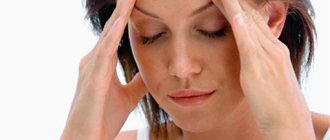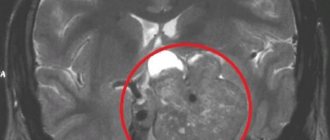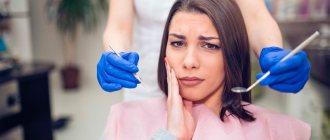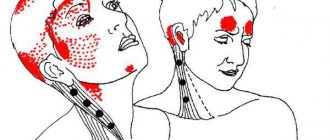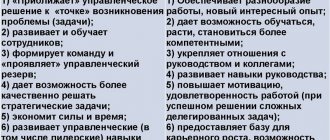Main types of scalp
- Normal, with the sebaceous glands producing only the required amount of sebum to maintain softness and elasticity.
- Dry, with scanty presence of this fat and insufficient supply of nutritional components. The skin dries out and the head itches.
- Flaky dandruff with the appearance of dandruff, scalp burning, discomfort, the patient complains of itching regardless of the type, hormonal imbalance appears.
- Oily, characterized by excess sebum production, tangled and greasy hair.
- The deeper ones produce new cells to replace the dead ones on the surface of the epidermis.
- They exfoliate and are removed from the top layer, gradually renewing the scalp.
- Here are hair follicles, sebaceous and sweat glands, sebum, nerve endings, and cells responsible for immune defense.
- They provide metabolic functions, tactile sensations, and regulate skin temperature.
The structure of the skin includes several layers:
Any failure in these functions can lead to disruption of processes and the appearance of problems when the scalp itches.
Causes of itchy scalp
It is quite possible to understand why the head itches badly and how you can relieve the annoying and incessant itching, but this requires establishing the exact cause of its occurrence. And only after the cause of its occurrence has been established, treatment and preventive actions can begin. In this article we will tell readers about what is most often associated with scalp itching.
Severe itching of the scalp - what to do?
Most often, the cause of an itchy scalp is quite prosaic and banal; as a rule, it is either dyeing hair using low-quality dyes, or using a new shampoo that contains sulfates. Also quite often the cause of discomfort in the form of itching, burning and redness of the skin is the development of seborrheic dermatitis. However, if you can get rid of itching in the first case by changing the shampoo or refusing to use low-quality paints, then with seborrhea you will have to undergo long-term treatment. But first things first.
Itchy scalp after painting - what to do?
Today, almost all beautiful representatives of humanity systematically experiment with their hair colors in order to look as stylish, fashionable and feminine as possible. Others use coloring products to hide gray hair and look more youthful. In both cases, when using low-quality dyes or dyeing at home, discomfort may occur on the scalp, expressed in the form of severe itching or redness of the skin. This is due to the fact that in low-cost hair dyes, most manufacturers use a dye made from coal tar, which was previously used in the production of photo developers and rubber chemicals. Also, very often low-quality hair dyes contain ammonia. Both of these substances are strong skin irritants.
Itching due to dehydration of the sebaceous glands
Very often, while moisturizing their hair, beautiful representatives of humanity completely forget about the scalp, as a result of which the skin becomes dry. It is worth saying that dry skin is the main sign that dehydration of the sebaceous glands has begun. As a result of their dehydration, the scalp begins to itch very much. Frequent or infrequent hair washing can also cause itchy hair. This is due to the fact that:
1. Frequent washing of hair results in dry skin; 2. If a person rarely washes his hair, sebum accumulates on the skin, which causes itching and burning.
In order to quickly eliminate burning and itching caused by dehydration or as a result of frequent or infrequent hair washing, it is recommended to use natural remedies, for example, jojoba oil, which in its composition is very similar to sebum. Due to its properties and similarity to the secretion secreted by the sebaceous glands, jojoba oil will act as an excellent moisturizer and relieve itching and irritation.
Itching due to frequent use of styling products
If there is no dandruff on the head, then the main cause of itching may be frequent use of hair styling products. This happens because the gels, varnishes, foams and mousses used by a woman to style her curls gradually accumulate on the scalp, as a result of which tiny scales begin to appear, causing itching. If you are forced to frequently use cosmetics for hair styling, try to give your preference to products that have a water base. This is due to the fact that such styling products are more effectively washed off the scalp.
Nervous itching of the scalp
At a time when the human body is not under stress, its organs, as well as the immune and nervous systems, operate as usual. However, after getting into a stressful situation, the body begins to activate defensive reactions, which leads to dissonance in the functioning of the senses and nervous system. As a result of such dissonance, a wide range of neurosensory manifestations can occur, one of which is scalp itching. If nervous itching occurs, there is no need to treat it, since this manifestation in itself is not dangerous. After all, after stress factors stop affecting the body and it is completely freed from hyperstimulating manifestations, the sensation of itching will disappear by itself.
Itchy scalp as a symptom of disease
In some cases, itching of the scalp is one of the symptoms of a more serious disease. To determine it, you must seek qualified medical help. For example, you should consult a doctor if:
1. Small scaly spots begin to appear on the scalp, which crack, cause pain and may bleed. The appearance of such spots on the skin is one of the signs of psoriasis. 2. If, along with itching, sudden hair loss begins, which becomes thinner and breaks, and liquid discharge forms on the skin, the above symptoms are signs of a staphylococcal infection.
Itchy scalp due to psoriasis
Psoriasis is a fairly common disease that is accompanied by peeling and redness of the skin. It is worth noting that at the initial stage this disease is very similar to dandruff, but has a higher level of scalarity. If symptoms of this disease occur, you should not put the matter off for a long time, but it is best to immediately consult a doctor to receive qualified medical care. Quite often, to treat psoriasis on the scalp at the initial stage of development of the disease, specialized shampoos containing salicylic or carbonic acid, as well as mineral oils, are used. These shampoo ingredients help soften the scalp and remove flakes. Also, for the treatment of psoriasis in a more advanced stage, many dermatologists prescribe steroid drugs, which are foams or liquids. These medications do not weigh down the hair, dry very quickly and reduce skin dryness, itching, flaking, and irritation. Inflammatory processes in the hair follicles Another cause of severe itching of the scalp can be inflammatory processes occurring in the hair follicles. It is worth saying that the presence of inflammation can cause serious diseases of the scalp and in order to avoid this, it is worth using natural products, as well as combs made from natural materials.
Which shampoo is best for itchy scalp?
When choosing a shampoo for an itchy scalp, you need to understand that you need to base this choice on the symptoms of discomfort. The best option to choose a shampoo that will really help get rid of itching is to consult a doctor. After all, the doctor, based on your symptoms, will help you choose a truly effective remedy. In addition, when purchasing such a care product, you need to carefully read its label in order to understand exactly what substances are present in its composition. So, for example, if the shampoo you are offered contains sulfates, then it is best to refuse to purchase it.
Scalp problems
The most common complaints include itching, dandruff, dryness and flaking. The causes of these symptoms can be different:
- unfavorable influences of the external environment;
- sun activity;
- chlorinated water;
- blow drying;
- frequent showers;
- incorrectly selected shampoo;
- varnishes, masks and other hair care products;
- low humidity levels;
- allergy;
- hormonal imbalance;
- genetic predisposition.
Also, dryness and itching, flaking of the skin can cause atopic dermatitis and other skin diseases.
Types of skin itching
The condition when the back of the head or the entire skin itches is a protective reaction to remove the irritating factor. There are different types of itching:
- Dermatological, characteristic of atopic dermatitis, scabies, lice, psoriasis.
- Neurological, arising from lesions of the nervous system.
- Systemic, observed in various pathologies of internal organs.
- Psychogenic, appearing under stress and psycho-emotional tension.
- Multifactorial, in the case of simultaneously different causes of origin.
- Idiopathic, with an unclear etiology.
- Other.
Objective grounds
Itching is a sensation accompanied by the need to scratch the skin. There are several opinions about its occurrence:
- irritation of certain pain receptors;
- occurs independently under the influence of mediators - histamine, serotonin, adrenaline, opioids and others.
The second theory is supported by the fact that itching sensations appear only in the superficial layers of the dermis and the mucous membranes adjacent to it, while pain occurs anywhere in the body. In addition, pain and itching can occur in isolation from each other.
Itching can be localized or spread throughout the body. Due to its occurrence, it is divided into:
- propriocevtive - appears due to a violation of the structure of the dermis;
- neuropathic – observed when the nervous system is damaged;
- neurogenic – without damage to the NS;
- psychogenic – mental disorders.
All types of symptoms differ in intensity, duration and place of occurrence.
Itching of the skin of the body often has objective causes and accompanies any disease. First of all, these include skin diseases :
| Type of disease | Cause | Why does it itch? | Localization of sensations |
| Dermatitis | Nervous stress, exposure to cold, allergens | Small rashes, peeling of the dermis. | Any part of the body |
| Dermatophytosis | Fungus | The vital activity of fungi in the upper layers of the skin | Scalp, smooth skin |
| Lichen | Fungi and viruses against the background of reduced immunity | Peeling of the epidermis | Scalp |
| Pediculosis | Lice | Parasite bite | Head, pubis |
| Psoriasis | It is not completely clear. Presumably: low immunity, heredity, infections | Dry, scaly rashes | Elbows, head, lower back, genital mucosa |
| Scabies | Mite | Parasite bite and blisters. Accompanied by severe itching, which intensifies in the evening | Interdigital area |
| Xerosis | Infections, hepatitis, liver cirrhosis, kidney disease | Coarsening and peeling of the skin | Any parts of the body |
| Neurodermatitis | Stress, allergies, hormonal and digestive disorders | Damage to the top layer of skin | Neck, skin folds, bends of knees, elbows |
Another skin condition that causes "scabies" is eczema . It is believed that it occurs against the background of reduced immunity. It can be triggered by stress, nervous tension, as well as hormonal imbalances and allergic reactions.
Eczema is characterized by the formation of foci of rashes in the form of “wet” blisters and pimples, and in some cases dry ones. The itching in this condition is simply unbearable; it is the main symptom of the pathology. The elements are localized on the neck, head, flexor surfaces of the elbows, ankles and knees.
The skin may itch if there are diseases of the internal organs :
- Kidney - a symptom manifests itself on the skin and in the genital area.
- Liver - spreads to the face and hands, while the skin turns yellow.
- Thyroid – dry, flaky and itchy skin on the hands and face.
- Anemia.
- Diabetes – the skin and mucous membranes of the genital organs begin to itch due to increased blood glucose levels.
- Oncological diseases.
- Hormonal disorders - menopause, pregnancy, menstrual syndrome.
- Viral infections - herpes, AIDS.
- Dehydration.
What to do if you're dry
Choose milder herbal shampoos enriched with plant oils and extracts. They will help restore lost balance and remove increased sensitivity, redness and irritation.
Use argan and olive oil, which contains unsaturated fatty acids and vitamin E (tocopherol), which transform hair into elastic, elastic and silky. They contain linoleic, oleic, palmitic, stearic, vanillic acid, as well as fungicides, tyrosol, and sterols. This composition moisturizes the scalp and strengthens brittle hair.
Take a not too hot shower, wash with slightly warm water. Higher temperatures help remove fat, causing irritation.
Pathologies that cause acute itching of the scalp
- Dandruff can be large in oily skin and small in dry skin. It appears as a result of stress, poor nutrition, hormonal imbalance, and the influence of a warm and humid climate.
- Seborrheic eczema is characterized by not only itching, but also rashes, redness and inflammation of the skin, often leading to the appearance of blisters. The rash can also affect the neck and face.
- Fungal infections are difficult to treat and cause itching, redness, blisters, and peeling. Over time, fungal spores penetrate deeper layers and cause severe infection and intoxication. They easily infect other people and are transmitted through contact and household contact.
- Seborrheic dermatitis is characterized by inflammation and affects areas rich in sebaceous glands. It is caused by fungi of the genus Malassezia, the same as dandruff, and is characterized by flaking and varying degrees of damage to the skin and hair.
- Infestation with lice, fleas, ticks and other parasites turns hair into a breeding ground for disease. They become covered with nits, which are difficult to comb out even with a special comb. In this case, total treatment with anti-pediculosis drugs, which are sold in pharmacies in the form of sprays and solutions, is required.
- Allergic reactions can occur even to hair care and styling products that have been used for more than one year. The cause of the allergy can be found out with a test from a dermatologist.
- Chemical and mechanical irritation with acute itching is also caused by hair dye, wearing tight headwear, and the use of care products with aggressive components included in the composition.
- Psoriasis manifests itself as small flaking of the scalp, redness, formation of plaques and thick scabs. It forms both single spots and affects large damaged areas. The patient feels tightness of the skin, itching, and it begins to peel off severely.
Itching of the scalp Constant burning of the scalp, tingling, desire to scratch - painful itching. Why does it arise? The reasons may be the following: an allergic reaction or the development of a dermatological or trichological disease.
Treatment
Therapy and methods of dealing with the problem should be discussed with a doctor who prescribes the necessary medications. This approach is safer, since attempting self-treatment increases the chance of the situation worsening.
At the first stage, the doctor prescribes medications aimed at improving the patient’s emotional state. At the very beginning, plant-based sedatives will have a good effect.
In cases where a person’s emotional state is extremely difficult, more powerful drugs from the group of antidepressants and strong sedatives (Venlafaccin, etc.) are used.
If itching appears on the scalp, it is impossible to use ointments and similar products. However, the use of herbal-based shampoos, which are sold in pharmacies, is allowed.
Also, taking antihistamines (Suprastin, etc.), which relieve various manifestations of itching and can completely eliminate it, will increase the chances of winning the fight against the problem. Despite the strong effect and relative safety, you should not take them yourself, because they can have a detrimental effect on the body.
